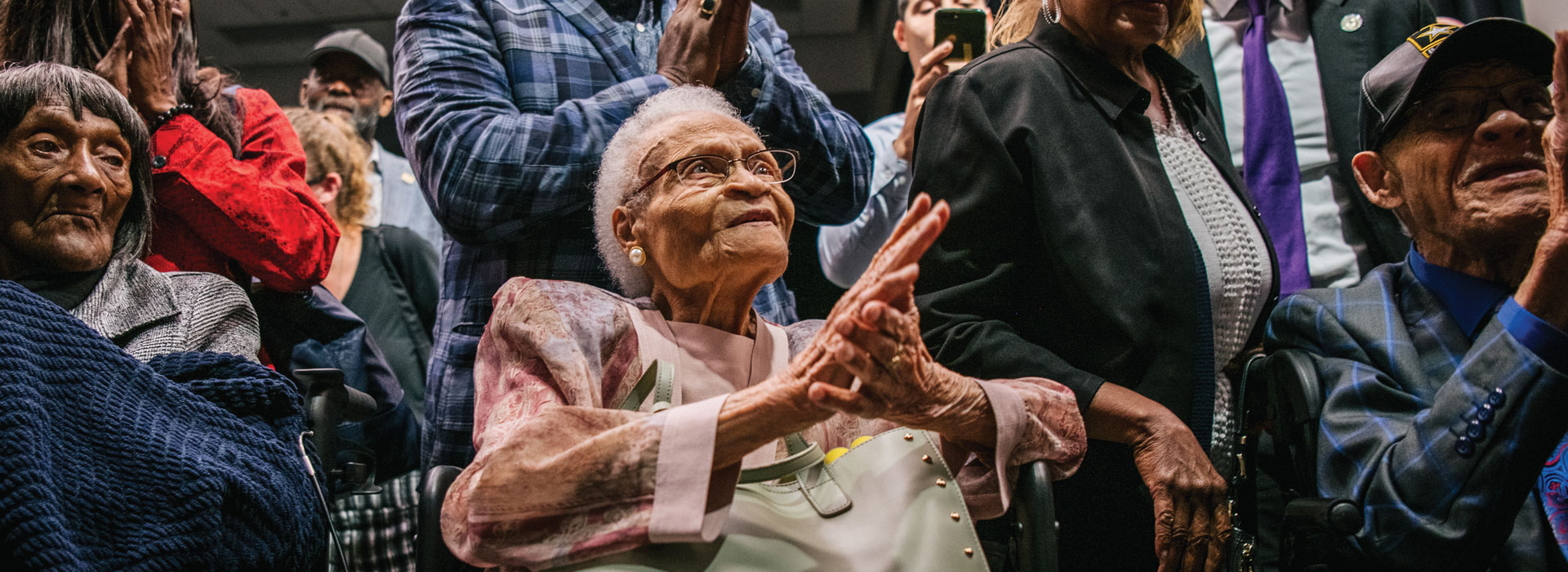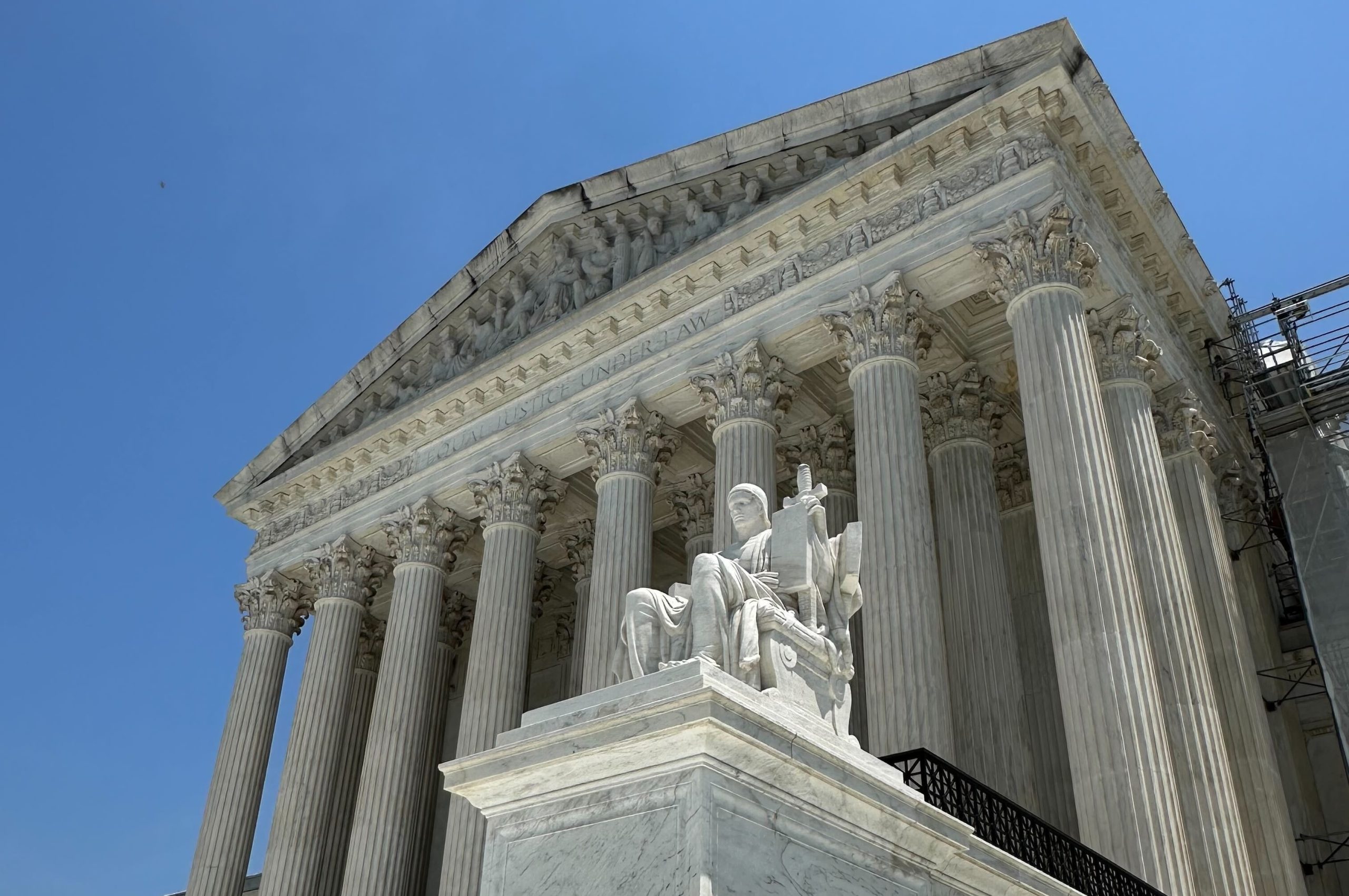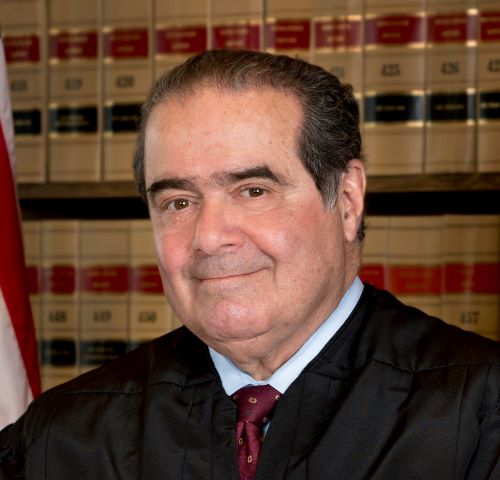Survivors of Tulsa Race Massacre can’t get reparations under nuisance law, top Oklahoma court says
Civil Rights
Survivors of Tulsa Race Massacre can’t get reparations under nuisance law, top Oklahoma court says
June 13, 2024, 8:57 am CDT
Tulsa Race Massacre survivors Lessie Benningfield Randle, age 109 (from left); Viola Ford Fletcher, age 110; and Hughes Van Ellis, who died in 2023 at age 102; attended a rally commemorating the 100th anniversary of the Tulsa Race Massacre on June 1, 2021. (Photo by Brandon Bell/Getty Images)
Updated: The Oklahoma Supreme Court on Wednesday upheld the dismissal of a lawsuit seeking reparations for the 1921 Tulsa Race Massacre on behalf of two survivors who are 109 and 110 years old.
The state supreme court said remaining plaintiffs Lessie Benningfield Randle, age 109, and Viola Ford Fletcher, age 110, could not recover under theories of public nuisance and unjust enrichment.
The New York Times and the Associated Press are among the publications with coverage.
The women had alleged that the city of Tulsa, Oklahoma, and other defendants created a continuing public nuisance during and after the massacre, leading to racially disparate treatment and city-created barriers to basic human needs for neighborhood residents.
The unjust enrichment claim alleged that the name “Black Wall Street” was used in marketing efforts to promote Tulsa as a tourist attraction, and the monetary benefits should be returned to the community.
A state court judge dismissed both claims in July 2023. The Oklahoma Supreme Court affirmed in its June 12 opinion.
The 1921 massacre happened in the area known as Black Wall Street after a Black man was accused of attempting to rape a white woman. The attack by a white mob left up to 300 people dead and destroyed more than 1,200 buildings in the all-Black neighborhood, according to an Oklahoma commission created in 1997 to develop the historical record.
The commission’s 2001 report cited strong evidence that local and county officials failed to calm or contain the violence and, in some instances, participated in the riot. Black residents were subjected to mass arrests and were allowed to be released only with an application by a white person.
In rejecting the public nuisance claim, the Oklahoma Supreme Court cited its 2021 decision overturning a $465 million verdict stemming from its marketing of prescription opioids. In that prior case, the state supreme court said public nuisance law didn’t apply because the conduct of the maker of the opioids was not criminal and didn’t involve property-based conflict.
“Today, the court is asked to expand its public nuisance liability once more,” the opinion said. But the statutory remedies for public nuisance offer no relief, the state supreme court said.
No one still alive can be indicted. There is no physical injury to property making it uninhabitable. Lingering economic and social consequences of the massacre more than 100 years later “do not constitute a public nuisance, as that term has been construed by this court,” the state supreme court said.
The alleged continuing blight within the Greenwood community of Tulsa “can only be resolved by policymakers—not the courts,” the state supreme court said.
Turning to the unjust enrichment claim, the Oklahoma Supreme Court said there can be no recovery for fundraising and community development efforts absent fraud or unconscionable conduct.
“Absent an allegation claiming that defendants are falsely or fraudulently promising donors that plaintiffs will share in or benefit from the proceeds of their fundraising efforts, defendants’ conduct itself is not legally unconscionable,” the Oklahoma Supreme Court said.
The case is Randle v. City of Tulsa.
See also:
An ongoing lawsuit seeks justice for massacre victims
Updated June 13 at 12:20 p.m. to correct a reference to the lower court judge in the case.






